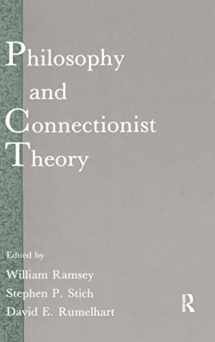
Philosophy and Connectionist Theory (Developments in Connectionist Theory Series)
ISBN-13:
9780805805925
ISBN-10:
0805805923
Edition:
1
Author:
William Ramsey, Stephen P. Stich, David E. Rumelhart
Publication date:
1991
Publisher:
Psychology Press
Format:
Hardcover
334 pages
FREE US shipping
Book details
ISBN-13:
9780805805925
ISBN-10:
0805805923
Edition:
1
Author:
William Ramsey, Stephen P. Stich, David E. Rumelhart
Publication date:
1991
Publisher:
Psychology Press
Format:
Hardcover
334 pages
Summary
Philosophy and Connectionist Theory (Developments in Connectionist Theory Series) (ISBN-13: 9780805805925 and ISBN-10: 0805805923), written by authors
William Ramsey, Stephen P. Stich, David E. Rumelhart, was published by Psychology Press in 1991.
With an overall rating of 4.1 stars, it's a notable title among other
books. You can easily purchase or rent Philosophy and Connectionist Theory (Developments in Connectionist Theory Series) (Hardcover) from BooksRun,
along with many other new and used
books
and textbooks.
And, if you're looking to sell your copy, our current buyback offer is $1.03.
Description
The philosophy of cognitive science has recently become one of the most exciting and fastest growing domains of philosophical inquiry and analysis. Until the early 1980s, nearly all of the models developed treated cognitive processes -- like problem solving, language comprehension, memory, and higher visual processing -- as rule-governed symbol manipulation. However, this situation has changed dramatically over the last half dozen years. In that period there has been an enormous shift of attention toward connectionist models of cognition that are inspired by the network-like architecture of the brain. Because of their unique architecture and style of processing, connectionist systems are generally regarded as radically different from the more traditional symbol manipulation models. This collection was designed to provide philosophers who have been working in the area of cognitive science with a forum for expressing their views on these recent developments. Because the symbol-manipulating paradigm has been so important to the work of contemporary philosophers, many have watched the emergence of connectionism with considerable interest. The contributors take very different stands toward connectionism, but all agree that the potential exists for a radical shift in the way many philosophers think of various aspects of cognition. Exploring this potential and other philosophical dimensions of connectionist research is the aim of this volume.


We would LOVE it if you could help us and other readers by reviewing the book
Book review

Congratulations! We have received your book review.
{user}
{createdAt}
by {truncated_author}


